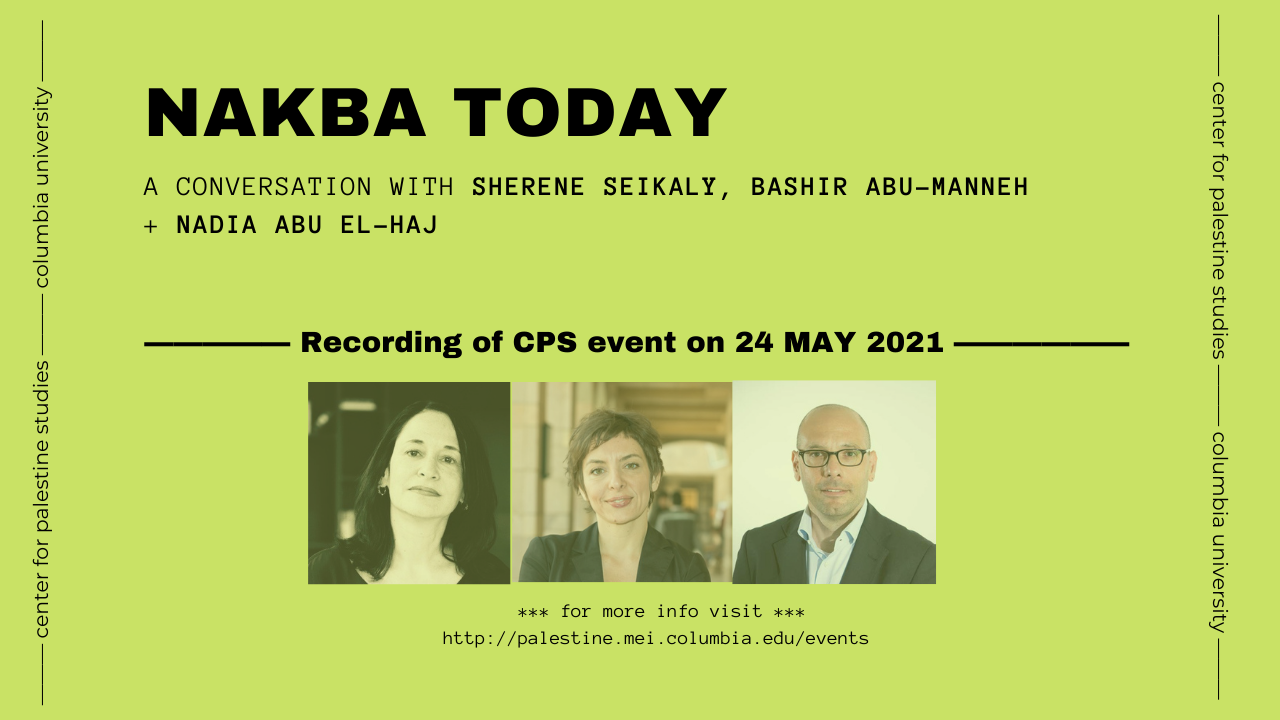Gender Studies Departments In Solidarity With Palestinian Feminist Collective
We stand in solidarity with the people of Palestine. We unequivocally answer and amplify the call from the Palestinian Feminist Collective for “feminists everywhere to speak up, organize, and join the struggle for Palestinian liberation.” We condemn the forced removal of Palestinians from their homes in Sheikh Jarrah, the raiding of the al-Aqsa mosque, the indiscriminate bombing of Gaza, one of the world’s most densely populated areas, and the de facto annexation of East Jerusalem, which by international law is illegally occupied territory. Israeli settlers, with the support of Israeli police and military forces, are taking over streets, invading homes, and brutalizing Palestinians. This right wing, ethnonationalist violence is often accompanied with the vile chant "Death to Arabs." We do not subscribe to a “both sides” rhetoric that erases the military, economic, media, and global power that Israel has over Palestine. This is not a “conflict” that is too “controversial and complex” to assess. Israel is using violent force, punitive bureaucracy, and the legal system to expel Palestinians from their rightful homes and to remove Palestinian people from their land. Israeli law systematically discriminates against Palestinian citizens of Israel. Illegal Israeli settlements choke and police Palestinian communities, and Palestinians are cut off from each other by a network of checkpoints, laws, settler-only highways, and a separation wall that swallows illegally occupied Palestinian land. Both Human Rights Watch and B’Tselem have concluded that Israeli policies and practices towards Palestinians amount to apartheid.
As gender studies departments in the United States, we are the proud benefactors of decades of feminist anti-racist, and anti-colonial activism that informs the foundation of our interdiscipline. In 2015 the National Women’s Studies Association wrote that our work is “committed to an inclusive feminist vision that is in solidarity with Indigenous peoples and sovereignty rights globally, that challenges settler colonial practices, and that contests violations of civil rights and international human rights law, military occupation and militarization, including the criminalization of the U.S. borders, and myriad forms of dispossession.” We center global social justice in our intersectional teaching, scholarship, and organizing. From Angela Davis we understand that justice is indivisible; we learn this lesson time and again from Black, Indigenous, Arab, and most crucially, Palestinian feminists, who know that “Palestine is a Feminist Issue.” In solidarity, we call for the end of Israel's military occupation of Palestine and for the Palestinian right to return to their homes. As residents, educators, and feminists who are also against the settler colonialism of the U.S., we refuse to normalize or accept the United States’ financial, military, diplomatic and political role in Palestinian dispossession. Furthermore, we will not tolerate any censorship of nor retribution against Palestinian scholars, activists, and those openly critical of the Israeli state. We join a vibrant, vast, and growing international solidarity community, composed of those raising their voices in support of Palestinian's right to freedom, return, safety, flourishing, and self-determination.
May 15th marked the 73rd anniversary of the Nakba, an ongoing ethnic cleansing of Palestine that drove over 750,000 Palestinians out of their homes, villages, and cities between the years 1947-1949. Today the vast majority of these Palestinians and their descendants are refugees in bordering countries and in the West Bank, Gaza, and East Jerusalem. Palestinians have been resisting settler colonialism for more than one hundred years. We hail the fortitude and determination of the Palestinian people, who remain, despite the fragmentation of their populations, united in their demands to end their oppression.
Visit http://genderstudiespalestinesolidarity.weebly.com for more information and to see the list of departments who signed the Solidarity Statement, including the Department of Women’s, Gender, and Sexuality Studies, Barnard College, Columbia University and the Institute for Research on Women, Gender, and Sexuality, Columbia University.

